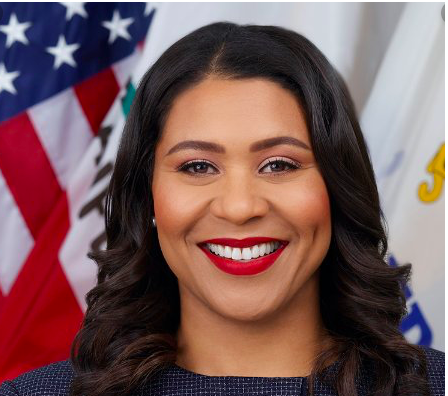
Rev. Norman Fong is stepping down as the head of Chinatown Community Development Center after 30 years of organizing leadership. He was, and is, one of the most popular people in Chinatown and in San Francisco politics: I don’t think I’ve ever met anyone who doesn’t love Norman Fong.
He’s worked hard for a long time serving others, and he deserve to relax and have some time for himself. But I doubt that’s going to happen: Norman is a born organizer and he’ll still be part of the local political scene.

The mayor’s monthly scheduled appearance before the Board of Supes is Tuesday/11, and is the custom, none of the board member submitted any questions. What I hear from the supes and their staff is that they find the process useless, since the mayor has to be told in advance the subject of the question, and she simply reads a prepared answer full of spin and deflection.
Which completely undermines the intent of the measure that created “question time.” The author, former Sup. Chris Daly, envisioned a vigorous period of policy debate between the mayor and the board, with both branches of government discussing in public the issues facing the city.
The law, passed in 2006, doesn’t say specifically that the board members have to submit questions in advance; that’s up to the rules that the board sets. And at first, then-Board President David Chiu cut a deal that required all questions to be submitted first in writing.
Sup. Aaron Peskin got the rules changed in 2018, and he has used the new rules to try to get some actual debate.
But since then the Mayor’s Office has pretty much refused to offer anything but stock answers.
This is a waste of what ought to be an important part of SF politics and policymaking.
I don’t know who the next board president will be; Sup. Norman Yee is termed out, and the board the city elects this fall will then choose a new president in Jan. 2021. But top on the agenda for anyone who wants the job should be new rules:
The supes submit nothing in advance to the mayor. The mayor shows up, the board members ask questions, and there is a policy debate for at least 15 minutes.
In the past, mayors have said they need to know the subject matter in advance so they can be prepared to answer. That’s so ridiculous: If the mayor of San Francisco can’t answer policy questions from the supervisors without their staff first vetting the material and writing out a prepared statement, then the mayor is woefully ill-informed and the public has the right to know.
The supes will also vote on an ordinance that would add teeth to the rules around landlords buying out tenants so they can vacate the units.
With rents soaring and greedy owners desperate to get rid of long-term rent-controlled tenants, it’s increasingly popular for owners to offer sums of cash to convince renters to leave.
These buyouts used to amount to stealth evictions; the tenant was gone, but the city had no record of it. Now, the city requires buyout agreements (typically in Ellis Act evictions) to be recorded with the Rent Board.
But there’s a loophole: If the landlord files an eviction lawsuit, and as part of the settlement the tenant agrees to accept money and leave, that’s not recorded; it’s just part of a lawsuit settlement.
The measure by Sup. Hillary Ronen would expand the rules to make sure than any attempt by a landlord to pay a tenant to leave– even as part of a settlement – get recorded at the Rent Board.
That’s not going to stop all of these (evil) evictions, but it will give the public a better chance to see what’s going on.
And speaking of knowing what’s going on: A lawsuit filed by a developer-funded organization that wants to overrule the city’s recent law requiring real disclosure of “dark money” will be heard in federal court Friday/14at 10am. The judge is Charles Breyer; the court is at 450 Golden Gate Ave.


